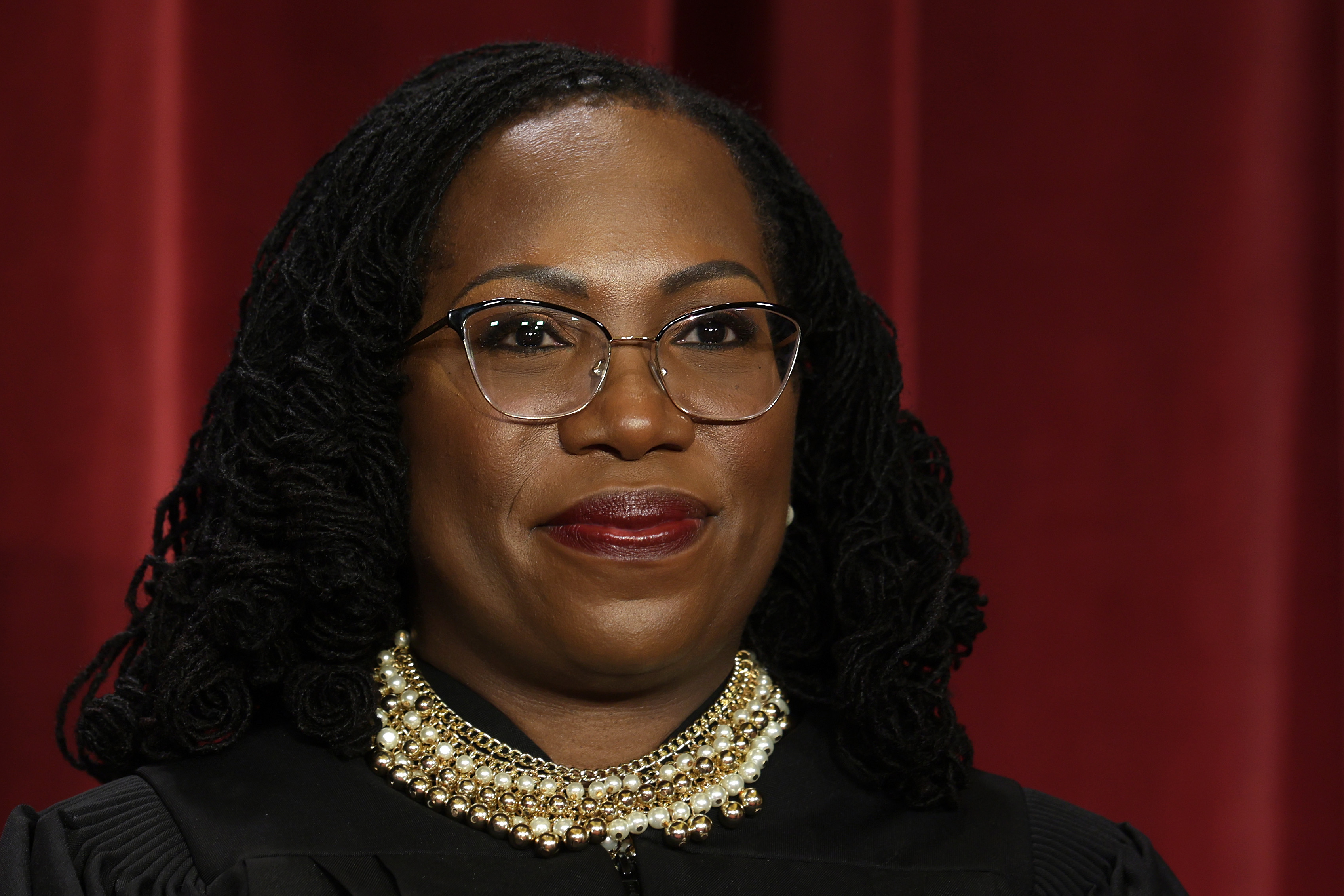Supreme Court Justice Ketanji Brown Jackson recently shared her concerns regarding the High Court’s ruling on presidential immunity, a move that suggests progressive justices may be feeling vulnerable, according to legal expert Harry Litman.
On July 1, the Supreme Court determined that sitting presidents cannot be prosecuted for certain alleged crimes committed during official duties, a decision that notably favored former President Donald Trump in his ongoing legal issues.
Justice Jackson, alongside Justices Sonia Sotomayor and Elena Kagan, dissented from the ruling, which was backed by all six conservative justices. In an interview with CBS News, Jackson expressed that the ruling grants Trump unwarranted advantages in legal matters.
“I was concerned about a system that seemed to provide immunity for one individual in a specific context, which contrasts with our criminal justice system’s usual equal treatment of all,” Jackson stated during the broadcast.

Alex Wong
Litman, a former deputy assistant attorney general, commented on Jackson’s televised remarks, indicating they reveal a struggle within the progressive justices. He noted that while her concerns mirrored her dissent, bringing them into a public forum highlights the precarious status of the liberal minority.
On the one hand, justice, Jackson’s expression of “concern” over the immunity decision is no more, in fact, a fair bit less, than she said in her dissent. On the other hand, it’s quite unusual to make it in that forum and a sign of how weak a position the 3 progressives are in.
— Harry Litman (@harrylitman) August 28, 2024
In her written dissent, Jackson warned that this ruling could exempt presidents from facing legal consequences for serious crimes if they claim their actions were official duties. She stated, “The Court has now declared for the first time in history that the most powerful official in the United States can become a law unto himself under yet-to-be-determined circumstances.”
She further expressed her inability to accept the majority’s rejection of accountability that should apply equally to all citizens, as required by the Rule of Law.
This ruling on immunity could significantly affect several ongoing criminal cases against Trump. However, his existing 34 felony convictions in New York remain unchanged, and two other felony cases are still unresolved.
Earlier on the same day, Special Counsel Jack Smith filed an amended indictment in Trump’s federal election subversion case, adjusting the document to align with the court’s decision by omitting references to Trump’s communications with the Department of Justice.
